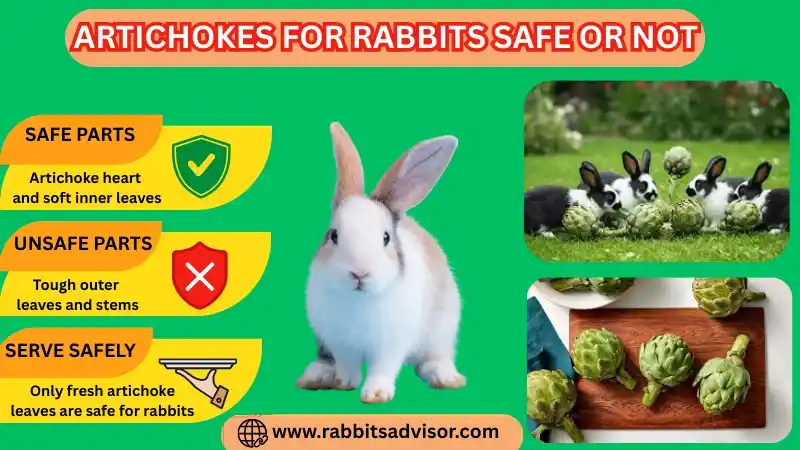Humans have been eating to like bread since thousands of years, and getting to love affair continues till now. Bread is a yummy home food that is eaten pan over the world. If you are pet lover, then you are thinking about ‘Can Rabbits Eat Bread or Not?’
In short answer is “Yes“, because bunnies like to eat bread cause of its soft stuff and sweet taste. Please don’t keep away! Little knowledge is dangerous. Feeding bread to your bunnies in rich amount can be harmful for rabbit’s digestion of starch and carbohydrates; because it contains the low nutritional value.
So it is toxic food for your rabbits; it can also kill them while giving in large value without monitoring the rabbit’s health. Therefore, from this content, you will get all informative things about whether bunnies eat bread or any of its variants, including toasted, white & brown, bread sticks or other.
What Can I Give Bread to My Rabbit?
You should not be fed bread for you bunnies, because it is not a suitable food for them. Bread lacks the necessary nutrients and fiber that rabbits need in their diet. Feeding bread to rabbits can lead to digestive issues, weight gain, and potential malnutrition.

While bread is not toxic to rabbits; but it is best to avoid giving it to them. Instead, opt for a balanced diet consisting of hay, pellets, fresh greens, and limited safe vegetables to meet your rabbit’s nutritional requirements.
Is Bread Toxic for Rabbits?
Bread itself is not inherently toxic to rabbits that meaning it’s not directly poisonous to them. However, it’s not a healthy food choice for them either. Rabbits have sensitive digestive systems that are adapted to a diet high in fiber and low in carbohydrates.
Bread, being low in fiber and high in carbohydrates, can upset their delicate digestive balance if consumed in large quantities or regularly.
When you will try to feed bread for your bunnies as regularly basis then it can pose several health problems, like as obesity, gastrointestinal issues, and other potentially dental issues if the bread consist the added sugars or is too sticky.
If your rabbit eats the moldy bread that could be made the mycotoxin poisoning, this can be harmful or even fatal.
What Happens If My Rabbit Eats Bread?
If your rabbit eats bread occasionally in small amounts, it might not immediately cause harm. However, feeding bread to rabbits regularly or in large amount, then it can pose to several potential health issues:
Also Read: Can Rabbits Eat Arugula? Complete Facts and FAQs
Digestive Upset: Bread is low in fiber and high in carbohydrates, which can upset a rabbit’s sensitive digestive system. Cause of this, many gastrointestinal problems can pose such as bloating, gas, diarrhea, or constipation.
Obesity: The high carbohydrate content in bread can contribute to weight gain in rabbits if consumed regularly. Obesity in rabbits can lead to various health problems, including joint issues and decreased lifespan.
Nutritional imbalance: Bread lacks essential nutrients that rabbits need for optimal health, such as fiber, vitamins, and minerals. Feeding bread as a significant part of their diet can result in nutritional deficiencies over time.
Dental Issues: Some types of bread may contain added sugars or be sticky, which can contribute to dental problems in rabbits. Rabbits’ teeth continually grow, and a diet lacking in adequate fiber can fail to wear down their teeth properly, leading to overgrowth or dental disease.
Mycotoxin Poisoning: If the bread is moldy, because it can contain harmful mycotoxins.
How Much Bread is Safe to Give to Rabbits?
When you come to feeding bread to your loving rabbits, then it is generally recommended to avoid it due to containing its low nutritional value and potential health risks. If you allow the small amounts of plain, whole-grain bread, then it might be safe as an occasional treat.
Also Read: Can Rabbits Eat Apples (Seeds, Skin, & Leaves)? Facts & FAQs
But it is not a necessary part of a rabbit’s diet. Bread doesn’t contain the essential nutrients and fiber that rabbits require to thrive, and feeding it to rabbits can lead to many health concerns, like as digestive issues, weight gain, and potential malnutrition.
Hence, it is best to prioritize a balanced diet consisting of hay, pellets, fresh greens, and limited safe vegetables to meet a rabbit’s nutritional requirements.
Is It Safe For Baby Bunnies To Eat Bread?
Feeding bread to baby bunnies is not recommended. They have delicate digestive systems that are still developing, and their nutritional needs are different from adult rabbits.
Also Read: Can Rabbits Drink Milk? Interested Facts and FAQs
Introducing bread into their diet too early can upset their digestive balance and potentially lead to health issues. It’s crucial for baby bunnies to receive proper nutrition from their mother’s milk during their initial stages of life.
As they begin to wean and transition to solid foods, their diet should consist primarily of high-quality hay and gradually introduce appropriate fresh vegetables.
Some Poisonous foods for Bunny’s Health
Rabbits have most sensitive digestive systems. So, there are some foods that are poisonous and harmful to a rabbit’s health include:
Also Read: Can Rabbits Eat Spinach? Complete Guidelines with FAQs
Chocolate: Chocolate contains the obromine and caffeine, which are toxic to rabbits and can cause symptoms such as vomiting, diarrhea, rapid breathing, increased heart rate, seizures, and even death.
Avocado: Avocado contains a substance called persin, which can be toxic to rabbits and other small animals. Ingesting avocado may lead to digestive upset, difficulty breathing, and heart congestion in rabbits.
Iceberg Lettuce: You can allow the dark leafy greens for your pet rabbits, and iceberg lettuce should be avoided. It contains the small nutritional value that can pose various digestive issues such as diarrhea and bloating.
Rhubarb: Rhubarb leaves contain oxalic acid, which is toxic to rabbits and can lead to kidney damage or failure if ingested.
Onions and Garlic: Onions and garlic, whether raw, cooked, or in powdered form, contain compounds that can cause damage to a rabbit’s red blood cells, leading to anemia.
Nuts and Seeds: Some nuts and seeds, particularly those with high fat content, can cause digestive problems and obesity in rabbits. Additionally, larger seeds can pose a choking hazard.
Beans: Certain types of beans, such as kidney beans, contain toxins that can be harmful to rabbits if ingested in large quantities.
Moldy or Spoiled Food: Moldy or spoiled food can contain harmful bacteria or mycotoxins that can cause digestive upset, illness, or even death in rabbits.
FAQs (Frequently Asked Questions)
Can Rabbits Eat Any Type of Bread?
Ideally, rabbits should only eat plain, unsweetened bread in small amounts. Avoid giving them bread with added sugars, fats, or other ingredients like raisins, nuts, or seeds, as these can be harmful to rabbits.
What Should I Do If My Rabbit Accidentally Eats Bread?
If your rabbit eats a small amount of bread by accident, monitor them for any signs of digestive discomfort such as bloating, diarrhea, or decreased appetite. If you notice any concerning symptoms, contact your veterinarian for advice.
Can Rabbits Eat Toast?
Toast is essentially bread that has been toasted. While it doesn’t fundamentally change the nutritional content of the bread, it might make it slightly more palatable for rabbits. However, the same cautions about feeding bread apply to toast as well.
Can Wild Rabbits Eat Bread?
Wild rabbits should not eat bread as it lacks essential nutrients and fiber, leading to digestive issues and potential health risks. Bread is high in carbohydrates, low in fiber, and can cause weight gain and malnutrition. It is crucial to prioritize a diet of hay, fresh vegetables, and herbs for wild rabbits.
Can Rabbits Eat Wheat Bread?
Rabbits should not eat wheat bread due to its low fiber content and unsuitable nutrient balance. Wheat bread lacks the essential nutrients rabbits need, potentially leading to digestive issues, weight gain, and malnutrition.
Can You Feed Rabbits Garlic Bread?
You should not be allowed to your pet bunnies, cause of its small value of nutrition with presence of garlic. Garlic is very bad (toxic) for them, and can pose many stomach problems.
Can Rabbits Eat Bread Crusts If They Are Fresh?
Fresh bread crusts are still not a suitable food option for rabbits. Bread crusts, whether fresh or stale, lack the necessary nutrients and fiber required for a rabbit’s well-being.
Can Rabbits Eat White and Brown Bread?
Rabbits should also not eat white or brown bread, because both have lack the necessary nutrients and fiber. Bread, whether white or brown, is high in starch and carbohydrates that can lead to digestive issues, weight gain, and malnutrition in bunnies.
Verdicts Up
So, now we hope that you have been completely educated about bread for rabbits. In short, as technically bunnies can eat bread, but you should not feed it to your loving pet rabbits. It is a high-carbohydrate food that can lead to digestive problems for bunnies.
If this article is valuable for you, then please share it along with your friends, family members, pet lovers or relatives over social media platforms like as Facebook, Instagram, Linked In, Twitter, and more.
Do you have any experience, tips, tricks, or query regarding on this? You can drop a comment!
Have a Nice Day!!






